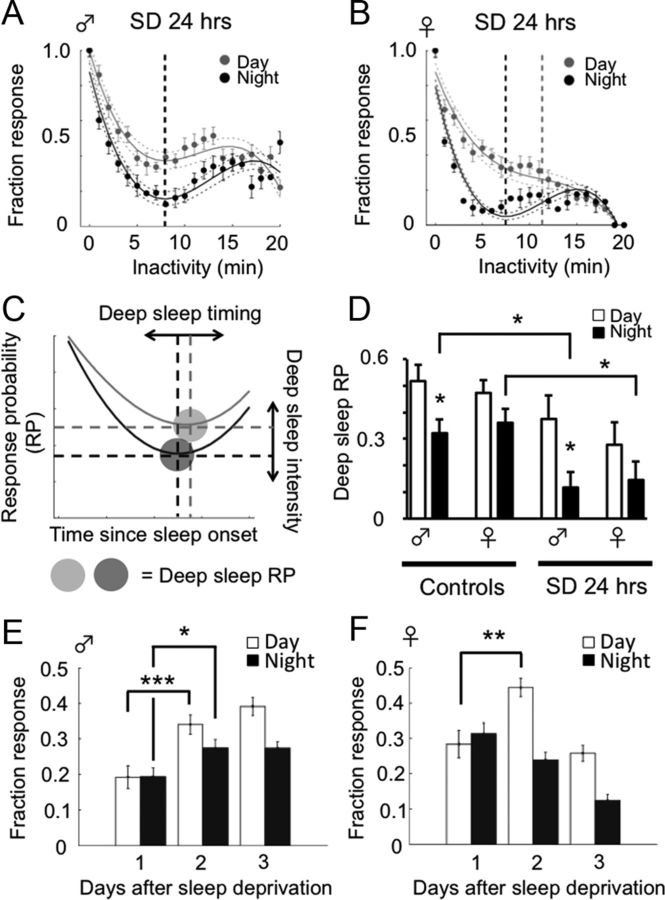Figure 7.
Effect of sleep deprivation on the first deep sleep stage. A, B, After 24 h of sleep deprivation (SD), sleep initiation occurs faster and sleep is deeper when recovery sleep occurs during the day or the night (A, males; B, females, n = 68 in both groups). A, Day, r2 = 0.92; night, r2 = 0.84. B, Day, r2 = 0.96; night, r2 = 0.89. C, Schema showing how deepest sleep timing is identified, with corresponding response probability (RP) at that time. Deep sleep RP was determined by averaging (non-smoothed) responsiveness data for a 5 min epoch centered around the deepest sleep time. D, Deep sleep RP averages (± SEM) for data from A and B comparing daytime and nighttime sleep intensity and SD and non-SD controls. *p < 0.05 by Wilcoxon rank-sum test. E, Average responsiveness during day and night for three consecutive days after 24 h of sleep deprivation in wild-type males (n = 68). A significant increase in responsiveness can be observed between days 1 and 2 after sleep deprivation, suggesting that decreased responsiveness on day 1 was due to deeper rebound sleep and not to damage caused by the sleep deprivation procedure. *p < 0.05, F(1,135) = 5.42; ***p < 0.001. F, Average responsiveness during day and night for three consecutive days after 24 h of sleep deprivation in wild-type females (n = 68). **p < 0.01.

